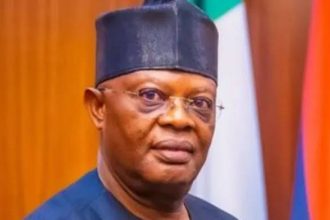Special Adviser to President Bola Tinubu on Economic Affairs, Dr. Tope Fasua, has explained why comparing poverty levels between Nigeria and developed countries like the United States can be misleading.
Speaking on the Mic On Podcast hosted by journalist Seun Okinbaloye, Fasua addressed the ongoing debate around poverty measurements and the perceived weakness of the naira against the dollar.
He noted that while the exchange rate may not favour the naira in global markets, its purchasing power within Nigeria remains significant when applied locally.
“Some people don’t understand what multi-dimensional poverty means,” he said. “It doesn’t always mean a lack of food or income. It could be that your child’s school is far away, or there is no hospital close by. That’s what qualifies a person as multi-dimensionally poor.”
Fasua further argued that in the U.S., $10 may not be enough to buy a decent meal, but in Nigeria, $1 (about N1,500) could get a meal depending on location and lifestyle.
“$1 is about N1,500. For many Nigerians, that’s a lot of money. In the U.S., $10 may not even buy you lunch. You might need up to $20 (about N30,000 in Nigeria),” he explained.
Citing examples from his experience, Fasua said: “In Gwarinpa (Abuja), you can get roasted plantain (Boli) and fish for N1,500. It depends on your lifestyle and where you are buying from.”
He emphasised the need for Nigerians to understand the context of poverty measurement and avoid blanket comparisons between the cost of living in Nigeria and foreign countries.




